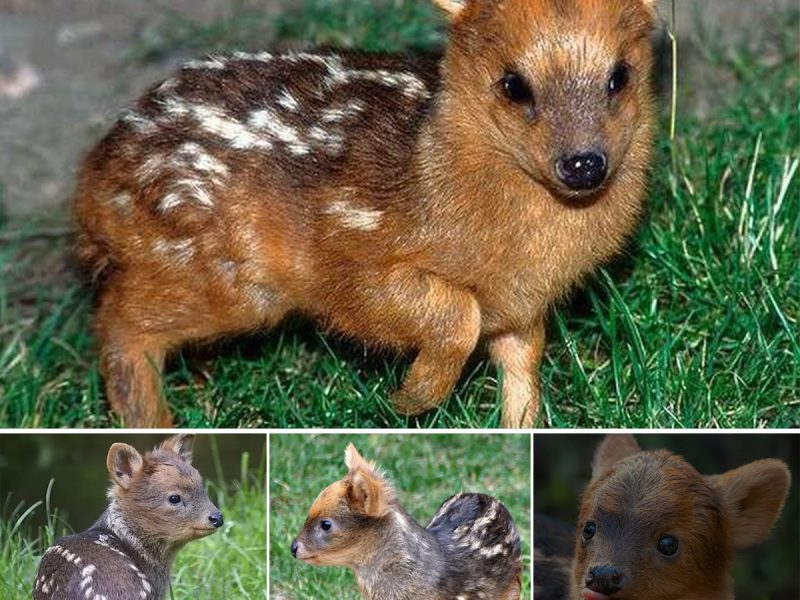A group of Japanese whale-watchers was able to spot two rare white orcas swimming off the coast of Hokkaido. It is one of the country’s northern-most islands, over the weekend. During a whale-watching tour on July 24 in the Kunashirskiy Strait, a 20-mile stretch of water between the northern islands of Hokkaido and Kunashir, they spotted.
1 / 7
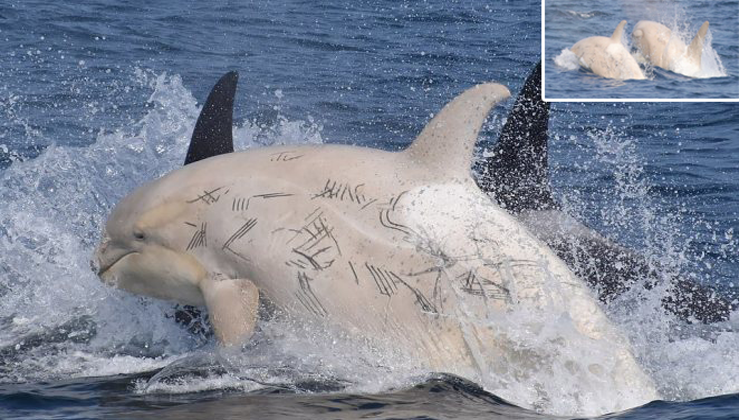
As said by Mai, an employee of the Gojiraiwa-Kanko tour company, one of the pair is older with slightly darker skin while the other is younger and having visible scratch marks on its back. She said that the older whale was first appeared around two years ago. But it is the first time she has seen the younger animal. And this is the first time they saw them together.
2 / 7
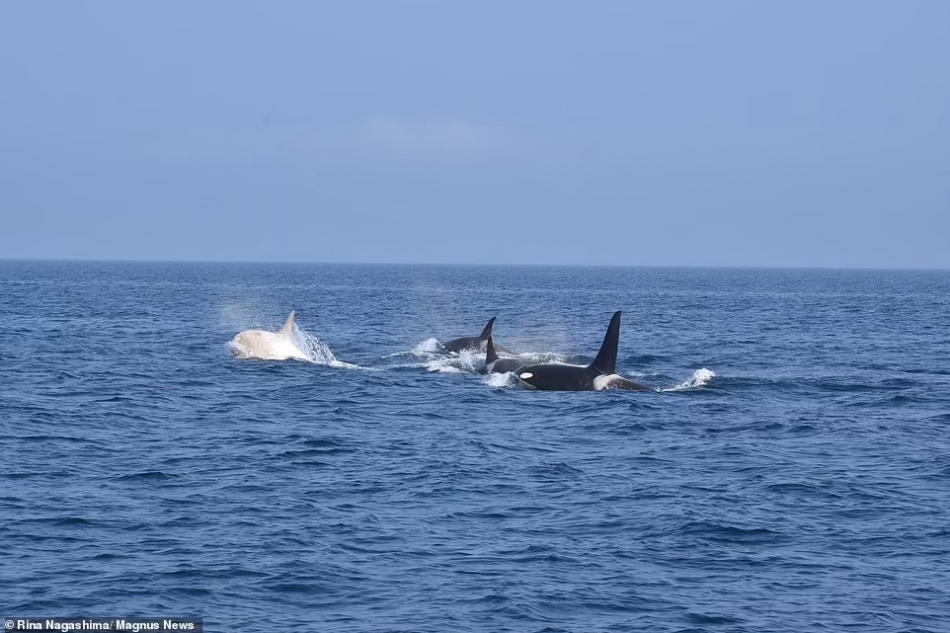
The pair may mostly be normal-looking orcas. But these two are thought to carry a gene that partially removes pigment from their skin which is making them appear white. They are not ‘true’ albinos, which is caused by a genetic trait. This means that the affected animal produces no melanin at all. Melanin is the compound that gives skin, hair, feathers, and eyes their color.
3 / 7
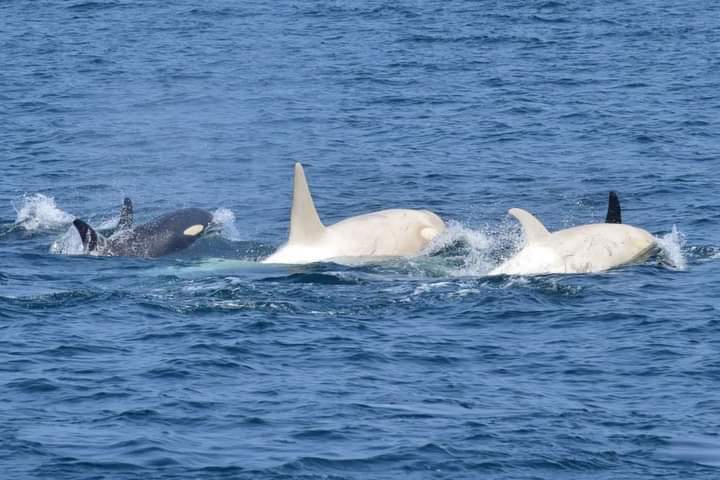
True albinos will be completely white and have red eyes. Color is given by the red blood in vessels that are usually hidden behind the iris showing through. Instead, scientists believe that they have leucism – a range of conditions where animals produce some melanin. But either has noticeably whiter skin or skin that is white in patches. And this explains the reason that their eyes are still dark.
4 / 7
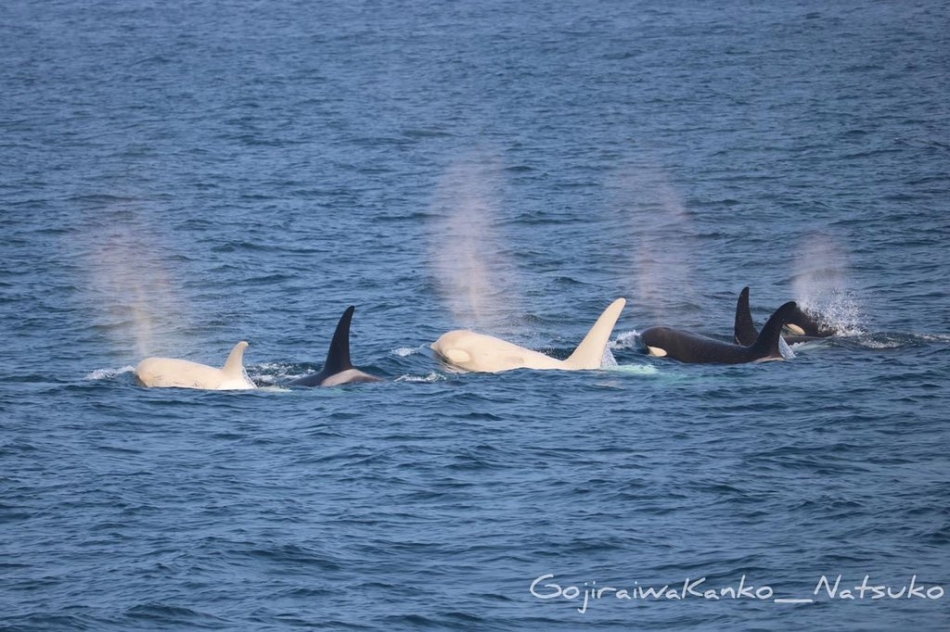
It also helps to explain the scarring down the side of the younger animal – which is particularly visible as the scar tissue seems to have healed in a darker shade compared to the surrounding white skin. For a long time, it was believed that they are rare, that they were thought of as a myth. But scientists believe that at least five individuals are alive.
5 / 7
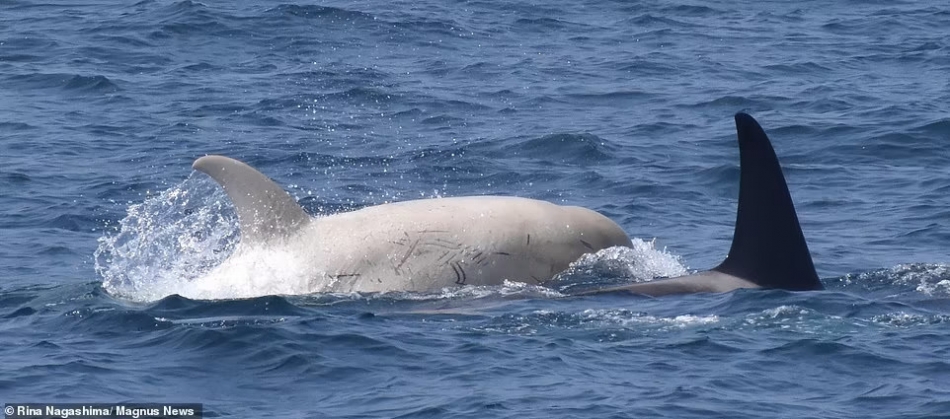
Having leucism might help to partially explain why the younger dolphin has visible scars – with the scar tissue containing more pigment than the rest of the skin, making the wounds hard to miss. White whales and orcas are becoming more common.
6 / 7
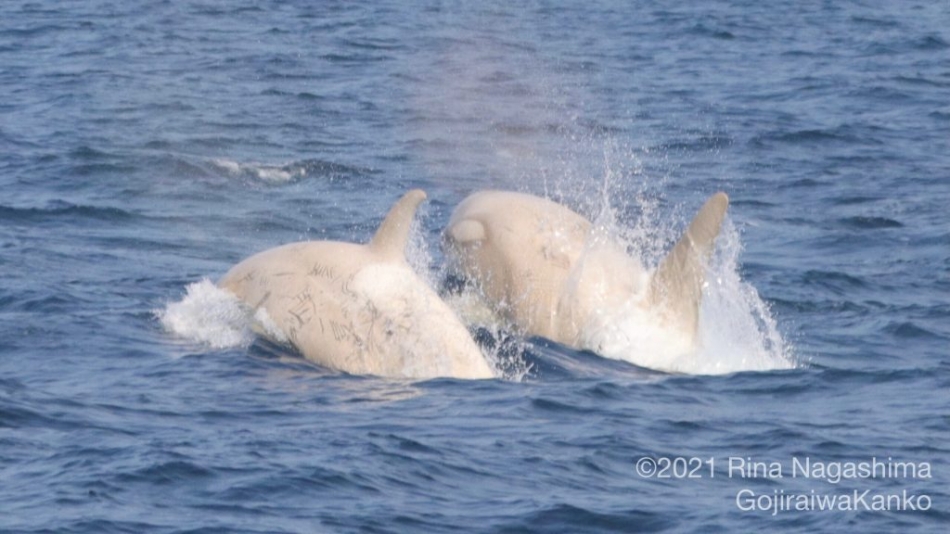
Scientists think that may be due to falling numbers of the animals, which decreases their genetic variation, meaning rare traits crop up more often the effect of the white color which is on the affected orcas is still not known as it makes them more visible, it could make them less effective hunters and mean they attract more attention from rivals.
7 / 7
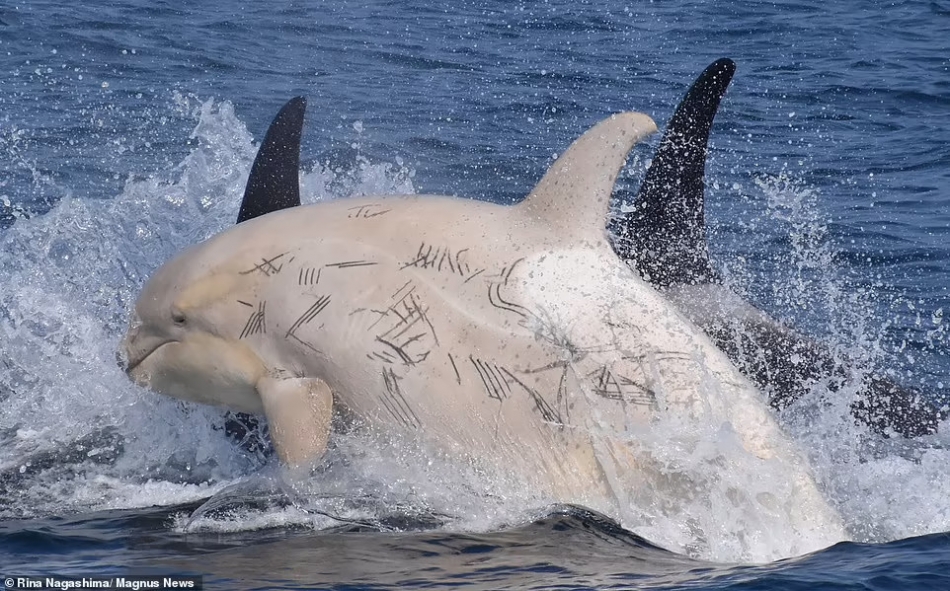
It is not known the reason why the species is getting common. But scientists predict that this may be a sign of trouble. Depending on the genes that are carried by those remaining individuals, it could accentuate some traits that were previously thought of as genetically rare. It includes rare genetic disorders that block an animal’s ability to survive in the wild, threatening to accelerate the species’ decline. It is not known ability of leucism does make them more visible and hampering their ability to hunt and attracting unwanted attention.

